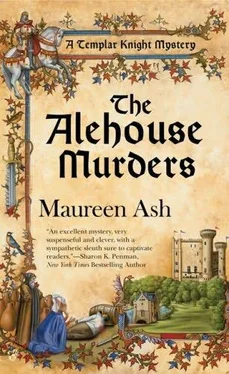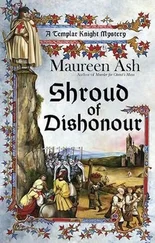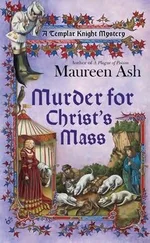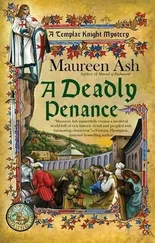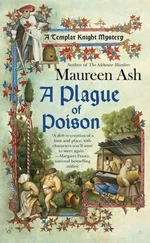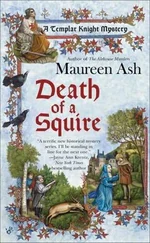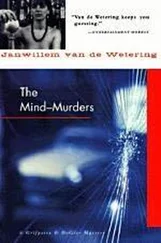Maureen Ash - The Alehouse Murders
Здесь есть возможность читать онлайн «Maureen Ash - The Alehouse Murders» весь текст электронной книги совершенно бесплатно (целиком полную версию без сокращений). В некоторых случаях можно слушать аудио, скачать через торрент в формате fb2 и присутствует краткое содержание. Жанр: Исторический детектив, на английском языке. Описание произведения, (предисловие) а так же отзывы посетителей доступны на портале библиотеки ЛибКат.
- Название:The Alehouse Murders
- Автор:
- Жанр:
- Год:неизвестен
- ISBN:нет данных
- Рейтинг книги:4 / 5. Голосов: 1
-
Избранное:Добавить в избранное
- Отзывы:
-
Ваша оценка:
- 80
- 1
- 2
- 3
- 4
- 5
The Alehouse Murders: краткое содержание, описание и аннотация
Предлагаем к чтению аннотацию, описание, краткое содержание или предисловие (зависит от того, что написал сам автор книги «The Alehouse Murders»). Если вы не нашли необходимую информацию о книге — напишите в комментариях, мы постараемся отыскать её.
The Alehouse Murders — читать онлайн бесплатно полную книгу (весь текст) целиком
Ниже представлен текст книги, разбитый по страницам. Система сохранения места последней прочитанной страницы, позволяет с удобством читать онлайн бесплатно книгу «The Alehouse Murders», без необходимости каждый раз заново искать на чём Вы остановились. Поставьте закладку, и сможете в любой момент перейти на страницу, на которой закончили чтение.
Интервал:
Закладка:
Nicolaa looked down the table to where Ermingard now sat, flanked by her husband, William de Rollos, on one side, and their dour-faced son, Ivo, on the other. De Rollos was a stolid Norman knight and had ostensibly brought his family from Normandy to attend the fair and to visit Ermingard’s family, but in reality he was looking for support from Nicolaa and Gerard in regard to his claim over some disputed land in Normandy. Ermingard sat as though imprisoned between her husband and her son, her red gold hair dimmed with grey, as was Nicolaa’s own, and her small heart-shaped face prematurely showing lines of age.
The placement between her two menfolk was not without reason on William’s part, for his wife could, without warning, be subject to wild changes of mood, one moment unspeaking and the next spilling with laughter at some jest apparent to no one but herself. She had been subject to these startling lapses from lucidity ever since the day she had come running to Nicolaa in a state of fright, her clothing dishevelled, holding a bloodstained rag in her hand and screaming in fright at the gush of bright redness that had suddenly appeared between her legs. No explanations from Nicolaa or from the next eldest of the Haye daughters, Petronille, could alleviate Ermingard’s distress and she stayed in a state of shock for days until her cycle had ended, only to get into a similar condition a month later when it happened all over again. Never since the day their mother died had Nicolaa felt her loss so heavily.
Her gaze strayed over to her other sister, Petronille, a plump motherly figure who had inherited the dark hair and eyes of their mother. She was sitting at the far end of the long table on the dais, between an elderly priest and another vassal of King John’s, Philip de Kyme. De Kyme was a grizzled and truculent baron about the same age as Gerard. He had rheumy dark eyes, a sallow expression and could be extremely argumentative when he had taken too much wine. Seating Petronille beside him had been a diplomatic decision on Nicolaa’s part. Her middle sister had a very calm nature, capable of listening to another’s speech without showing impatience or the need to thrust her own conversation forward. She was at ease with her table companions even though the old cleric was mumbling almost constantly as he ate meat from the trencher in front of him, and Philip de Kyme, as usual, was complaining about his son-by-marriage and lamenting the lack of an heir from his own seed. Petronille, deftly passing more food to the priest and murmuring an assent to his disjointed phrases, still managed to be able to listen to de Kyme and give the correct response in the right place.
Nicolaa hoped Petronille would be able to stay for longer than the few days she had said was all she could afford to be absent from her husband and household in Stamford. Petronille was a balm that Nicolaa sorely needed at the moment, especially with difficult guests like Philip de Kyme, who was, at that moment, casting angry glances about him.
The object of his disgruntlement, his stepson Conal, stood laughing and drinking a cup of wine a short distance away in the company of her own son, Richard. The pair had finished eating and had strolled over to watch a trio of tumblers who were cleverly balancing on each other’s shoulders and dropping down and back in almost constant motion, all within the confines of a tiny patch of floor. One of the tumblers was female, her legs encased, for modesty’s sake, in thin woollen stockings under her skirt. But for all the covering, her shapeliness could be seen as she flew up and down between the hands of her two partners and Nicolaa saw that Richard’s eyes were fixed in an avid stare on her antics while Conal, son of de Kyme’s wife from her first marriage, watched Richard, amusement on his face.
They made a handsome pair, the two young friends, so recently dubbed into knighthood. Richard had hair that was almost as bright a red as her own had once been, with a genial manner and a strength of limb and shoulder that promised to soon equal his father’s. Beside him Conal looked slim, but his tall lanky build was deceiving, for Nicolaa had seen him best larger and more experienced men on the practice field. He was fair, like his mother, and his features were finely drawn, giving his full mouth and bright grey eyes an almost feminine look.
Nicolaa shook her head. Richard, she knew, was a lecher, just as her father had been. Somehow it was more disturbing in an offspring than a parent, but she gave thanks that his inclinations were not like Conal’s who, although it was never spoken of openly, was suspected of liking members of his own sex in preference to females. This conjecture stemmed from the fact that he seemed to show none of a young man’s usual interest in women. To be fair, neither did he seem attracted to any of the young pages or squires with whom he came into daily contact and Nicolaa was sure that Richard would not have befriended Conal if there was any suspicion of an aberration in his sexual proclivities. The hint of sodomy was ever apparent in de Kyme’s complaints of his stepson, however, and in his bewailing of no heir to carry on his line. There were de Kyme’s aplenty in Lincoln, he would moan, but not one of them his own true son. Then he would look pointedly at the long-suffering woman to whom he was married and shake his head. It was fortunate that tonight his wife, Sybil, had asked to be excused from the feast, pleading illness as an excuse to keep to her bed.
Nicolaa shrugged. It was nothing to do with her. She remembered vaguely from her own youth that there had been some ruckus at the time of de Kyme’s marriage to Sybil, who was older than he and a widow with a young son. Philip had apparently wanted to wed another, but the girl had been of low birth and dowerless and Philip’s father had threatened his son with the loss of his inheritance if he did not wed Conal’s mother. Recently, he had taken to constantly referring mysteriously to the fact that, had he been allowed his own inclinations in the matter of his marriage, he would have heirs aplenty and it was not too late to rectify the matter. So repetitive were his complaints that no one took much notice of them anymore, not even Gerard, who was closest to de Kyme in that they often shared the pleasure of the hunt or the sampling of some new wine from Poitou.
Nicolaa gave herself a mental shake. That morning the castle chaplain had spoken at Mass of the dangers of the seven deadly sins, no doubt aiming to warn his flock against indulgence while the fair, with its atmosphere of freedom and gaiety, took over the more sober routine of Lincoln for the next few days. Each of us, the priest had said, is guilty of at least one of the deadly sins at some time, and often of two or more. Nicolaa ran through them in her mind-Lust, Pride, Avarice, Envy, Sloth, Anger and Covetousness. She looked around at her companions at the high table. Yes, she thought, the priest was right-we are all guilty of at least one of those sins. Hugh of covetousness, de Kyme of anger, Gerard of sloth, Richard, her son, of lust-just in such a short space she could pick these out and, she admitted, there was her own sin of pride, which she excused to herself by naming it a strong sense of duty. We are all sinners, she thought, even if only in the secrecy of our own hearts. But the priest had also reminded his flock of the seven virtues-Faith, Hope, Charity, Justice, Prudence, Temperance and Fortitude-and told them that at least one of these also was possessed by each man or woman, and that by prayer these virtues could be strengthened to overcome the temptation of the seven deadly sins.
Judging by the raucous laughter and drunken merriment of the crowd in the hall tonight, Nicolaa thought it certainly seemed true that the virtues were harder to find than the sins. Her gaze fell on the Templar, Bascot de Marins. He was an enigma to her, seeming to be completely self-contained except in his relationship with his young servant. It had been on impulse that she had given him the task of trying to discover the identity of the murderer of the four people in the alehouse. He had proved himself a valuable addition to her retinue, but she had the feeling that he had talents beyond those required for a simple clerk and she had wanted to bring them out. The rule that the Templars who left their Order could only do so on condition they join a monastic order stricter than their own was a loose one, and Nicolaa was sure that if she brought pressure to bear on the Grand Master of the Temple in London he would agree to overlook this stipulation with regard to Bascot. Since she hoped the Templar would wish to leave the Order and accept an offer to remain in her household, she wondered if giving him additional responsibility might not defeat her own purpose. It may just drive him into making the very decision she least wanted, that of returning to the Order that he had become, at least temporarily, disenchanted with. Ah well, she thought, as her father had often said, a metal must be well tempered to ring true. And, as with metal, so it was with men. That was a lesson she had learned too well to ignore.
Читать дальшеИнтервал:
Закладка:
Похожие книги на «The Alehouse Murders»
Представляем Вашему вниманию похожие книги на «The Alehouse Murders» списком для выбора. Мы отобрали схожую по названию и смыслу литературу в надежде предоставить читателям больше вариантов отыскать новые, интересные, ещё непрочитанные произведения.
Обсуждение, отзывы о книге «The Alehouse Murders» и просто собственные мнения читателей. Оставьте ваши комментарии, напишите, что Вы думаете о произведении, его смысле или главных героях. Укажите что конкретно понравилось, а что нет, и почему Вы так считаете.
